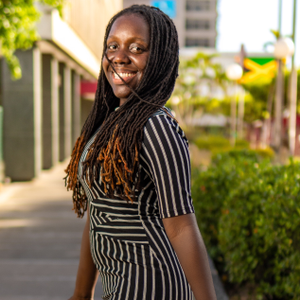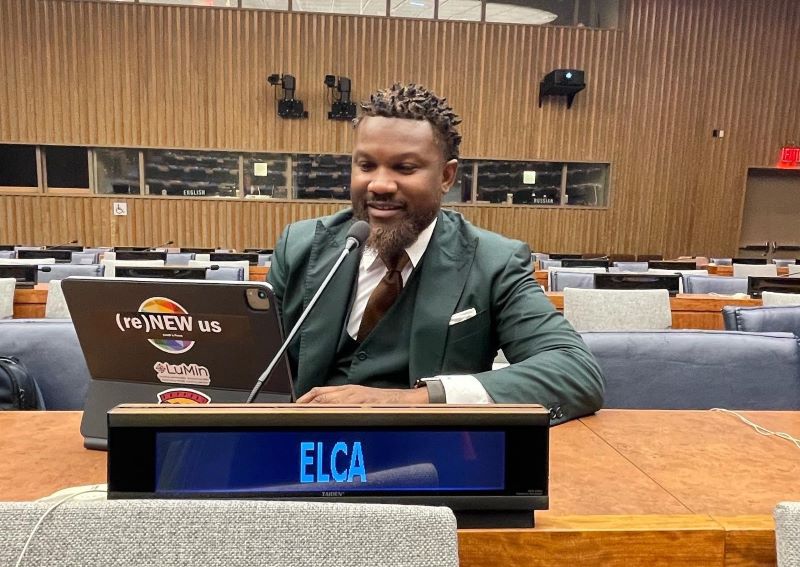As a child, I was first introduced to personal money management by way of a savings account at a commercial bank. I also had a piggy bank. With my medium of attempting to save, where I would drop coins and cash through the slit of the piggy at the end of each week, I felt empowered to know that I had my own money. Every month, I would empty my piggy and lodge the funds in my savings account at the bank.
With the help of my parents, I had a head start on real personal money management. However, that was where it tapered off until I transitioned into that awkward teenager-but almost a legally recognized adult. So, what happened in the gap years?
The explicit lessons to teach me about the benefits of good money management, why it’s important to save and other ways of saving money, were nonexistent. While I had a head start at home, school dropped the ball. The focus was more on the academic (learning algebra, how to calculate hire purchase problems, how to conjugate verbs, the principles of science subjects etc.). There were little to no lessons on financial literacy.
Whereas I was a few steps ahead in comparison to others, other fundamentals of financial literacy were missing. Sam X Renick, co-creator of Sammy Rabbit, a children’s character and financial literacy initiative says “Money is central to transacting life, day-in and day-out. Where we live, what we eat, the clothes we wear, the car we drive, health care, education, child-rearing, gift giving, vacations, entertainment, heat, air-conditioning, insurance—you name it, money is involved.” So, “Without a working knowledge of money, it is extraordinarily difficult to do well in life.”
If what Renick says is true, then why do we short change children? It is the responsibility of parents and guardians to prepare their children for the world and a big part of that ought to be good money management. Better must be done.
It’s a horrible situation entering adulthood with expectations placed on you to properly manage your finances responsibly when there was little to no opportunity to learn about it.
Research indicates that there is a strong correlation between financial literacy in children and future financial well being. A 2018 study conducted by Christiana Stoddard and Carly Urban for the National Endowment for Financial Education posits that “students who are required to take personal finance courses starting at a young age are more likely to tap lower-cost loans and grants when it comes to paying for college and less likely to rely on private loans or high interest credit cards.”
In response to the report, Yanely Espinal, director of educational outreach at Next Gen Personal Finance warns that the racial gap will get wider. She states that the financial decisions and behaviors are not going to improve any time soon and it will lead to another debt-riddled generation. Though financial literacy is not the only contributing factor to the racial wealth gap, it is part of the solution.
Since necessity is the mother of invention, some schools within the US have opted to fill the gap in access to financial education.
In 2020, students from the Prince George’s Public Schools in Maryland advocated and called for requiring a personal finance stand-alone class in the schools within the district. The Prince George’s Public School district is one of the largest and among the most diverse in the US with 55% of its students being Black and 36% being Hispanic or Latino. Based on the advocacy of some of the students, the financial literacy course is now a requirement for students to graduate high school as of 2024.
Among the students leading the charge is Zoë McCall from the Academy of Health Sciences in Largo, Maryland.

Zoë McCall advocated for a mandated personal finance class for all high schools in Prince George’s County, Maryland. | Source: Drue Thornton on CNBC
“Not all of us know how credit works. Not all of us know how to get a loan and stuff like that,” she says after stating that she has had financial discussions at home but wanted to know more. “We’re going to need to know how to take out a loan to pay for college, we’re going to need to know how to pay back student debt, we’re going to need to know the basics of money, and not a lot of us do,” she continues.
This is a major win in improving the access to financial literacy education.
Dr. Monica Goldson, CEO of the Prince George’s Public School district says, “We want them to walk away with knowledge of how to earn money, how to make money work for them and the know-how to stay out of debt or manage debt they may incur,” and we couldn’t agree more.

Dr. Monica Goldson | Source: Prince George’s County Public Schools
As much as it is important for all children to be financially literate, it is especially important for children who are considered economically disadvantaged to have access to such knowledge.
Dr. Goldson also says,” It is our hope that this financial education will empower students to make their money work for them and ultimately will be a catalyst toward upward mobility.”
Honorary Mention – The National Urban League
The National Urban League has a Project Ready Initiative that supports youth in and outside the classroom. Their work includes financial literacy education. The Project Ready Initiative prepared African American and historically underserved youth in grades 8-12 as they prepare for the next step of their educational journey.
In closing, give children a fighting chance to be better functioning adults by teaching them about money and how to properly manage it. We can’t expect them to automatically know how if they are not taught. So, the same effort that is placed on ensuring children excel in traditional lessons at school and home should be present in ensuring their financial literacy.
Sources:
How To Teach Your Kids Good Money Habits – Forbes Advisor
Teaching Personal Finance To Kids Can Help To Close The Black Wealth Gap – CNBC
Giving Kids An Early Financial Education Pays Off In The Future – CNBC
Our Approach – National Urban League

Candice Stewart is a Jamaican content writer specializing in human interest feature stories. She is a web content writer, blogger, and budding podcaster.
She holds an MA in Communication for Social and Behaviour Change and a BSc. in Psychology from the University of the West Indies (UWI, Mona).
Follow her blog at thesuburbangirlja.com, where she shares stories and life lessons through real-life experiences.





